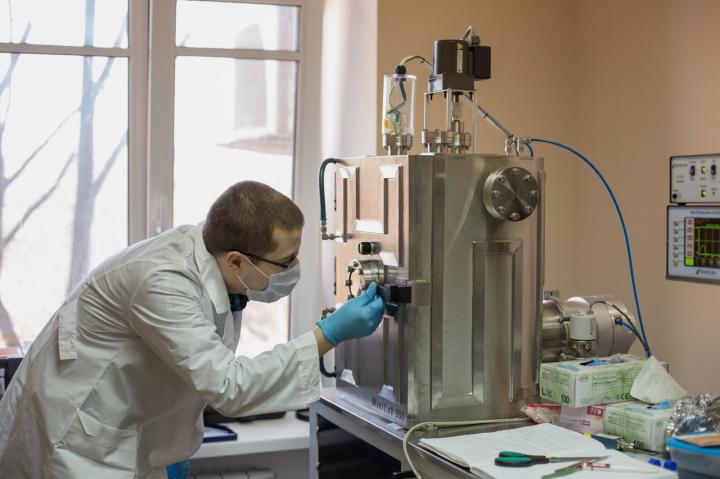
Credit: Peter the Great Saint-Petersburg Polytechnic University
In mid-February 2017 researchers of Peter the Great St. Petersburg Polytechnic University (SPbPU) and the University of Madras obtained support of the Russian Foundation for Basic Research for implementation of the project to create new materials for accumulators of capacitor type. The project should be completed within three years.
Storage of electrical energy in the accumulators of capacitor type is one of the most promising approaches when rapid, in particular pulsed, charge output is required. Such devices should maintain their functionality in conditions of significant temperature increase, combined with the high currents. The aim of the project is to develop approaches for creation of new dielectric materials to increase the efficiency of accumulators of capacitor type in a wide temperature range.
The research focuses on new materials based on antiferroelectrics, having significantly different working mechanism from the widely used analogue.
The principal novelty of the approach offered by scientists is a joint study of the antiferroelectric materials properties both in the form of single crystals, which allows to apply most informative experimental techniques, and in the form of ceramics, that has direct practical significance.
"The opportunity to study monocrystalline antiferroelectrics appeared only in the last few years with the development of methods of this type of crystal growth. Joint influence of pressure and temperature will be studied by X-ray scattering using resistively heated diamond anvil cells. Previously, such approach has never been applied. X-ray scattering techniques are planned to be applied using both laboratory diffractometers, and experimental facilities of synchrotron sources ESRF (France) and CAT (India)", said Dr. Alexey Filimonov, Head of Physical Electronics department of the Institute of Physics, Nanotechnology and Telecommunications, SPbPU.
###
Media Contact
Raisa Bestugina
[email protected]
7-812-591-6675
@pgpuspb
http://english.spbstu.ru/
############
Story Source: Materials provided by Scienmag





